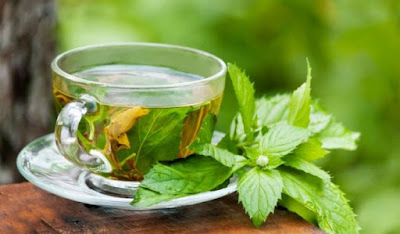Brewed Green Tea Dosage
Green tea has been used in China for 5,000 years as a medicinal remedy for such conditions as arthritis, high cholesterol and even cancer. Most people enjoy a nice, hot cup of tea, but few realize that switching to green tea can actually boost the metabolism. The epigallocatechin gallate (EGCG) in green tea has been shown to boost metabolism and help the body burn up to 80 more calories. The recommended dosage for brewed tea is five cups a day, or a cup of tea with each meal and snack. It may seem like a lot, but since an average coffee mug holds 8 ounces, drinking five cups will knock out a majority of your daily fluid intake, while helping you lose weight.
Green tea contains caffeine, which can help stimulate the metabolism; however, the amount of caffeine is significantly less than coffee, at about 30 to 60 milligrams per serving, as compared to coffee's 100 milligrams. Caffeine does assist the body with fat burning, but if you are sensitive to caffeine, don't drink the tea close to bedtime. Give your body about five hours to metabolize the caffeine and flush it from your system so you're not wide awake all night.
Green Tea Supplements
If you do not want to drink 40 ounces of green tea a day, you can purchase green tea extract pills. There is no consensus within the medical community on a recommended dosage for green tea in supplement form, but a supplement that gives you 300 milligrams a day has been shown to boost metabolism, according to a study done recently by Dr. Venket Rao, professor emeritus at the Department of Nutritional Sciences at the University of Toronto and Dr. Kathee Andrews. The study proved that individuals taking approximately 270 milligrams of EGCG and 3,400 milligrams of conjugated linoleic acid (CLA), both active ingredients in green tea, did show noticeable weight loss. Taking 300 milligrams of green tea extract will give you the amount of EGCG and CLA that you need to lose weight. An earlier study in the journal Phytomedicine showed a weight loss of about two pounds per month for participants who included green tea in their diets.
Where To Find Green Tea
Green tea can be found in most grocery and health food stores. It is available in tea form, both in bagged tea and loose leafed, as well as in pill form. If you have trouble swallowing all the pills required, or five cups of tea per day is too much, alternating the methods may be the best solution. Note, however, that green tea is most effective when consumed without sweeteners, so put away the sugar, artificial sweeteners and honey.
Most green teas and green tea supplements are reasonable for any budget. With the tea and supplements costing less than $10 each, it is a cost-effective addition to any weight-loss program. Green tea also can be purchased online through tea emporiums, but it will cost more, upwards of $30, for loose-leaf products. However, if you're wanting premium taste and quality, it may be worth the extra money.
As with any diet program, it is best to consult a physician first. A professional can instruct you on how to properly structure your diet to fit your particular needs.







